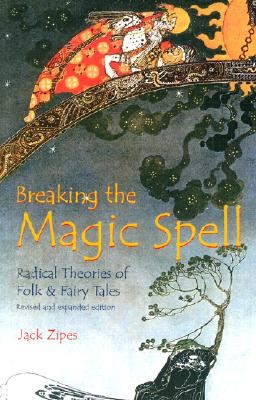| Breaking the Magic Spell: Radical Theories of Folk and Fairy Tales Revised Edition Contributor(s): Zipes, Jack (Author) |
|
 |
ISBN: 0813190304 ISBN-13: 9780813190303 Publisher: University Press of Kentucky OUR PRICE: $24.75 Product Type: Paperback - Other Formats Published: July 2002 Annotation: Breaking the Magic Spell, first published in 1979, is a landmark in the field, and this revised, expanded, and updated edition will be invaluable to scholars and students. Folk and fairy tales pervade the everyday world to such a degree that we are sometimes unaware of their enormous influence on our behavior. In the seven essays in Breaking the Magic Spell, Zipes discusses historically and critically the evolution of folk tales as fairy tales, their influence on popular beliefs, the politics behind them, and the way they are used in mass media culture today. Zipes looks at how a wide range of authors, including the Brothers Grimm, Perrault, the German romantics, Hans Christian Andersen, Wilde, and Tolkien, used fairy tales as he assesses their enduring importance. |
| Additional Information |
| BISAC Categories: - Social Science | Folklore & Mythology |
| Dewey: 398.209 |
| LCCN: 2001007415 |
| Physical Information: 0.74" H x 5.8" W x 8.56" (0.90 lbs) 304 pages |
| Descriptions, Reviews, Etc. |
| Publisher Description: This revised, expanded, and updated edition of the 1979 landmark Breaking the Magic Spell examines the enduring power of fairy tales and the ways they invade our subjective world. In seven provocative essays, Zipes discusses the importance of investigating oral folk tales in their socio-political context and traces their evolution into literary fairy tales, a metamorphosis that often diminished the ideology of the original narrative. Zipes also looks at how folk tales influence our popular beliefs and the ways they have been exploited by a corporate media network intent on regulating the mystical elements of the stories. He examines a range of authors, including the Brothers Grimm, Hans Christian Anderson, Ernst Bloch, Tolkien, Bettelheim, and J.K. Rowling to demonstrate the continuing symbiotic relationship between folklore and literature. |